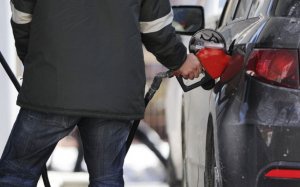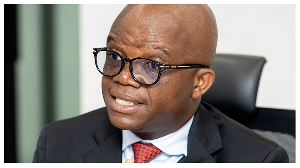Government will need to spend GH¢2.4billion on subsidies, or more than 12 percent of its revenues, to maintain fuel prices at their current levels throughout the year.
Petroleum products have been massively subsidised since 2010, and the cost of the subsidies has been rising with growing consumer demand that is fuelled by the country’s brisk economic growth.
“If this money is provided, it will ensure that petroleum prices will not change at the pumps,” said a statement issued to the B&FT on Friday by the Public Relations and Consumer Services Department of the National Petroleum Authority (NPA).
Subsidies cost the government more than GH¢1billion in 2012 -- an increase of 167 percent from 2011, the NPA revealed -- while average monthly consumption surged by 17 percent to 90 million litres between 2009 and 2011. The total subsidy enjoyed by consumers from 2009 to 2012 was GH¢1.5billion.
In May last year, the International Monetary Fund (IMF) urged the government to eliminate costly energy subsidies which were crowding out expenditures in the priority areas of infrastructure, education and healthcare.
According to the NPA, the challenge of increasing levels of subsidies creates two main impacts: first on the petroleum industry and second on the government purse.
It said a 90-day lag in the payment of refunds to petroleum-product importers by the government -- which arises from under-pricing -- causes importers to delay their own payments to banks and creditors, eventually creating shortages on the market as fresh deliveries are deferred.
The NPA added that when such shortages occur, emergency cargoes have to be procured at high spot market prices to save the situation. Under normal circumstances, importers purchase their cargoes through futures contracts with suppliers.
The government at present subsidises all types of petroleum products -- with the subsidies ranging from 30 percent of the full-cost-recovery price of petrol and diesel to 88 percent of the full-cost recovery price of pre-mix fuel, used by fishermen to power their boats.
The subsidies on Liquefied Petroleum Gas (LPG) and kerosene cover 55 percent and 72 percent respectively of their actual market prices.
“Granting of subsidies on all petroleum products at current levels is not sustainable and should be reconsidered,” the NPA said, adding that subsidies have encouraged fuel adulteration, especially of petrol, diesel and kerosene.
Government’s rationale for subsiding fuels such as kerosene and pre-mix is that they are predominantly used by the poor; but the NPA said the subsidies are not benefitting the primary target. For kerosene, it said “rural dwellers pay more than they would if the subsidy was removed and the product made readily available”.
The increase in energy subsidies and government spending on wages caused last year’s budget deficit target to be revised to 6.7 percent of GDP from 4.8 percent initially. But in November the Bank of Ghana said the deficit had hit 7.3 percent of GDP in the first nine months of 2012.
Analysts suspect that the gap may have widened to 9 percent of GDP in December, and expect the government to curb its borrowing in 2013. Removing all the subsidies on petrol will raise the price to GH¢2.4056 per litre from GH¢1.7080 per litre presently.
For diesel, a total withdrawal of subsidies will increase the price to GH¢2.4623 per litre from GH¢1.7236 per litre. The last review of prices was carried out in December 2011, but the government subsequently cut the increase by 20 percent in February 2012 following agitation by consumers and labour groups.
Business News of Monday, 11 February 2013
Source: B&FT

















